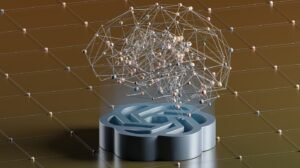Computer Algorithm History
Introduction
Computer algorithms have played a crucial role in the development of computing systems. From their earliest beginnings to the advanced algorithms used today, understanding their history is essential in grasping the foundations of modern technology and how it continues to shape our world.
Key Takeaways:
- Computer algorithms have evolved significantly throughout history.
- Understanding the history of algorithms provides insights into the development of computing systems.
- Advancements in algorithms have revolutionized various industries and everyday life.
The Origins of Algorithms
Algorithms have roots dating back thousands of years to ancient civilizations such as the Egyptians and Babylonians. These early societies used algorithms to solve mathematical problems, build structures, and organize their daily lives.
*Interesting Fact: The ancient Egyptian Rhind Papyrus from around 1650 BCE contains 85 algorithmic problems. *
Key Algorithmic Contributions
Throughout history, several key individuals and discoveries have shaped the field of algorithms. From the work of Euclid, known for his algorithm to find the greatest common divisor, to Carl Friedrich Gauss, who developed the method of least squares, these contributions laid the foundation for algorithmic thinking.
- Gottfried Wilhelm Leibniz invented the binary numeral system, a fundamental building block for modern algorithms.
- Ada Lovelace is credited as the world’s first computer programmer for her work on Charles Babbage’s Analytical Engine.
- Alan Turing’s concept of the “universal machine” forms the basis of modern computing and algorithmic theory.
The Rise of Digital Computers
The mid-20th century marked a significant milestone in algorithmic history with the advent of digital computers. The first digital computers, such as the ENIAC and UNIVAC, were programmed using punched cards and plugboards, requiring manual intervention and limited the complexity of algorithms.
*Interesting Fact: The ENIAC (Electronic Numerical Integrator and Computer), built during World War II, weighed 30 tons and consumed 150 kilowatts of electricity.*
Algorithm Complexity and Efficiency
As computing power increased, algorithms became more complex. Researchers began studying algorithmic efficiency and developing methods like the Big O notation to analyze how an algorithm’s running time and memory requirements scaled with input size.
*Interesting Fact: The first practical algorithm for finding the shortest path in a graph, known as Dijkstra’s algorithm, was developed in 1956 by Edsger W. Dijkstra.*
Table 1: Contributions to Algorithmic Thinking
| Contributor | Contribution |
|---|---|
| Gottfried Wilhelm Leibniz | Invention of the binary numeral system |
| Ada Lovelace | World’s first computer programmer |
| Alan Turing | Concept of the “universal machine” |
Algorithmic Advancements Today
In modern times, algorithms continue to advance rapidly, with applications in various industries, including finance, healthcare, transportation, and artificial intelligence. Machine learning algorithms, such as neural networks, have made significant breakthroughs in speech recognition, image classification, and autonomous vehicles.
- Faster algorithms for sorting large data sets have revolutionized database management.
- Optimization algorithms are widely used in supply chain management to optimize logistics and reduce costs.
- Blockchain technology relies on cryptographic algorithms to ensure secure transactions in decentralized systems.
Table 2: Applications of Algorithms
| Industry | Application |
|---|---|
| Finance | High-frequency trading algorithms |
| Healthcare | Medical diagnosis algorithms |
| Transportation | Routing algorithms for GPS navigation |
The Future of Algorithms
As technology continues to advance, algorithms will play an increasingly important role in shaping our world. Quantum algorithms, capable of harnessing the power of quantum computers, have the potential to revolutionize fields such as cryptography, optimization, and drug discovery.
*Interesting Fact: Shor’s algorithm, a quantum algorithm, can factor large numbers exponentially faster than the best-known classical algorithm, threatening current cryptographic systems.*
Table 3: Quantum Algorithms
| Algorithm | Application |
|---|---|
| Grover’s algorithm | Database search |
| Shor’s algorithm | Factorization |
So next time you use a search engine, navigate with a GPS, or interact with an AI assistant, remember the rich history of algorithms that made it all possible. Their continuous evolution and future innovations drive the remarkable progress of computing and its impact on society.

Common Misconceptions
Introduction
Computer algorithm history is a topic that is often surrounded by misconceptions. These misconceptions can stem from lack of knowledge or misunderstanding of the subject matter. In this section, we will address some of the most common misconceptions people have around the history of computer algorithms.
Misconception 1: Algorithms Were Invented in the Modern Era
- Algorithms have been used for centuries, well before the advent of modern computers.
- Ancient civilizations, such as the Babylonians and Greeks, developed mathematical algorithms to solve complex problems.
- The concept of algorithms has been around for a long time, but our understanding and ability to implement them has evolved over the years.
Misconception 2: All Algorithms Are Complex
- While some algorithms can be incredibly complex and require advanced mathematical knowledge, not all algorithms are difficult to understand.
- Simple algorithms, such as sorting or searching algorithms, can be easily explained and implemented by beginners.
- The complexity of an algorithm depends on the problem it aims to solve and the efficiency required.
Misconception 3: Algorithms Are a Recent Invention
- Algorithms have been used throughout history, even before the advent of computers.
- Ancient civilizations used algorithms to solve problems like calculating astronomical positions or predicting eclipses.
- The concept of step-by-step instructions to solve a problem has been around for a long time, but the tools and technologies used to implement algorithms have evolved.
Misconception 4: Algorithms Are Only Used in Computer Science
- While algorithms are commonly used in computer science and programming, their applications are not limited to this field.
- Algorithms are used in various disciplines such as mathematics, physics, biology, and even in everyday life.
- From calculating mortgage payments to finding the optimal route for a GPS navigation system, algorithms are everywhere.
Misconception 5: Algorithms Are Infallible
- Algorithms are designed to solve specific problems, but they are not infallible.
- They can produce incorrect results or behave unexpectedly if not properly implemented or if the data input is not accurate.
- The reliability and accuracy of an algorithm depend on factors such as the quality of the implementation, the accuracy of the input data, and the correctness of the underlying assumptions.

Overview of Computer Algorithm History
Computer algorithms have played a vital role in the development of computer science and have revolutionized various industries. They are step-by-step instructions that guide computers in solving problems and executing tasks efficiently. Throughout history, algorithms have evolved and transformed the way we interact with technology. The following tables highlight key milestones and significant algorithms that have shaped the field of computer science.
The Birth of Computer Algorithms
| Milestone | Description |
|---|---|
| Analytical Engine | Charles Babbage develops the first mechanical computer that can execute algorithms. |
| Ada Lovelace | She becomes the world’s first computer programmer, writing algorithms for Babbage’s Analytical Engine. |
Early Algorithms in Everyday Life
As computers advanced, algorithms found applications in various fields, making complex tasks more manageable. Here are some notable algorithms used in everyday life:
| Application | Algorithm |
|---|---|
| Internet Search | PageRank algorithm by Larry Page and Sergey Brin revolutionizes web search, making it more accurate and efficient. |
| GPS Navigation | Dijkstra’s algorithm efficiently calculates the shortest path between two points. |
| Online Shopping | Collaborative filtering algorithms power personalized product recommendations. |
Machine Learning Algorithms
The emergence of machine learning and artificial intelligence has driven the development of powerful algorithms that enable computers to learn and make predictions based on data. Here are some influential machine learning algorithms:
| Algorithm | Application |
|---|---|
| Linear Regression | Predicting housing prices based on historical data. |
| K-means Clustering | Grouping similar users for targeted marketing campaigns. |
| Convolutional Neural Network | Image recognition and computer vision tasks. |
Advancements in Data Structures
Data structures are fundamental components of algorithms and contribute to their efficiency. Over time, new data structures have been introduced to address computational challenges. Here are some noteworthy examples:
| Data Structure | Description |
|---|---|
| Linked List | A linear data structure where elements are stored in separate nodes connected by pointers. |
| Hash Table | A data structure that maps keys to values and allows for efficient retrieval and storage of data. |
| Binary Search Tree | A binary tree structure where each node has at most two child nodes, facilitating efficient searching and sorting. |
Quantum Computing Algorithms
Quantum computing aims to harness quantum phenomena to execute algorithms that outperform classical computers. Here are some notable quantum algorithms:
| Algorithm | Application |
|---|---|
| Shor’s Algorithm | Factorization of large numbers, impacting cryptography. |
| Quantum Fourier Transform | Efficiently performs Fourier transforms, enhancing signal processing. |
| Quantum Machine Learning | Adapting machine learning algorithms for quantum computers, enabling faster data analysis. |
Algorithms in Robotics and Automation
Algorithms have revolutionized the field of robotics, enabling intelligent decision-making and automation. Here are some key algorithms in robotics:
| Algorithm | Application |
|---|---|
| SLAM | Simultaneous Localization And Mapping algorithms enable robots to map unknown environments and determine their own position relative to the surroundings. |
| A* Search | An algorithm used for path planning and navigation by finding the shortest path between two points on a graph. |
| Reinforcement Learning | Algorithms that enable robots to learn from trial and error and make decisions based on rewards. |
Popular Sorting Algorithms
Sorting algorithms arrange data in specific orders, optimizing search and retrieval operations. Here are some widely-used sorting algorithms:
| Algorithm | Time Complexity |
|---|---|
| Bubble Sort | O(n^2) |
| Quick Sort | O(n log n) |
| Merge Sort | O(n log n) |
Algorithm Analysis Techniques
A crucial aspect of algorithm design is analyzing their performance. Different techniques assess time complexity and efficiency. Here are some analysis techniques:
| Technique | Description |
|---|---|
| Big O Notation | A notation that characterizes the upper bound performance of an algorithm in terms of time and space complexity. |
| Amortized Analysis | A method of analyzing the average running time of a sequence of operations, considering worst-case scenarios. |
| Asymptotic Analysis | Evaluating the behavior and growth rate of algorithms as input size approaches infinity. |
Conclusion
Throughout the history of computer science, algorithms have continuously evolved and become more powerful, impacting various aspects of our lives. From early pioneers like Ada Lovelace to the development of machine learning algorithms and the advent of quantum computing, algorithms have driven technological advancements. Understanding the history and diverse applications of algorithms is crucial in the ever-changing landscape of computer science.
Frequently Asked Questions
What is a computer algorithm?
A computer algorithm is a step-by-step procedure or set of instructions designed to solve a specific problem or accomplish a specific task. It is a fundamental concept in computer science and forms the basis for the development of software and applications.
When was the first computer algorithm created?
The first computer algorithm is often attributed to Ada Lovelace, who developed the concept for Charles Babbage’s Analytical Engine in the mid-1800s. However, algorithms have been used in various forms long before the advent of computers, dating back to ancient civilizations.
What is the history of computer algorithms?
The history of computer algorithms dates back to ancient times with the development of mathematical algorithms by Greek mathematicians such as Euclid and Pythagoras. The concept further evolved with advancements in computer technology, including the formalization of algorithms by mathematicians and computer scientists in the 20th century.
What are some famous computer algorithms?
There are several famous computer algorithms that have made significant contributions to various fields. Examples include the Dijkstra’s algorithm, which finds the shortest path in a graph, the RSA algorithm for public-key encryption, and the PageRank algorithm used by Google to rank web pages.
How have algorithms impacted society?
Algorithms have had a profound impact on society, influencing various aspects of our lives. They are used in search engines, financial systems, social media platforms, recommendation systems, and more. Algorithms play a crucial role in processing and analyzing vast amounts of data, enabling automation and decision-making in numerous domains.
What are some challenges in developing algorithms?
Developing algorithms can be challenging due to factors such as algorithm complexity, efficiency, and correctness. Designing algorithms that are scalable and can handle large datasets poses a significant challenge. Additionally, ensuring algorithmic fairness, mitigating biases, and addressing ethical concerns are emerging challenges in algorithm development.
How are algorithms optimized?
Algorithms can be optimized through various techniques such as algorithmic analysis, algorithmic design paradigms, and algorithmic improvements. Optimization involves reducing computational complexity, improving efficiency, and enhancing performance to achieve the desired outcome within resource constraints.
Are there ethical implications associated with algorithms?
Yes, algorithms raise ethical implications and concerns. They can perpetuate biases, discrimination, and reinforce societal inequalities if not developed and deployed with care. Ethical considerations include issues of algorithmic transparency, accountability, privacy, and potential social or economic impacts.
How do algorithms impact artificial intelligence and machine learning?
Algorithms play a central role in artificial intelligence (AI) and machine learning (ML). They form the basis for training models, making predictions, and optimizing decision-making systems. AI and ML algorithms enable pattern recognition, data analysis, natural language processing, and other capabilities that contribute to the development of intelligent systems.
What is the future of computer algorithms?
The future of computer algorithms is expected to be driven by advancements in areas like artificial intelligence, quantum computing, and big data. Algorithmic development will focus on addressing complex challenges, optimizing for efficiency and scalability, and ensuring ethical and responsible use of algorithms.




